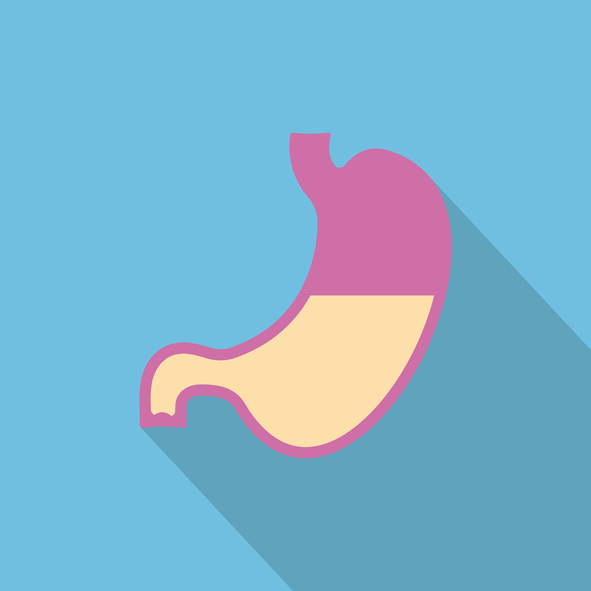 According to the National Institute of Health, in 2000, 63 million Americans were affected by chronic constipation. Chronic constipation can affect anywhere from 2% to 27% of the population. It is the most frequent of digestive illnesses seen by gastroenterologists.
According to the National Institute of Health, in 2000, 63 million Americans were affected by chronic constipation. Chronic constipation can affect anywhere from 2% to 27% of the population. It is the most frequent of digestive illnesses seen by gastroenterologists.
Signs and symptoms of chronic constipation include:
- Passing fewer than three stools a week
- Having lumpy or hard stools
- Straining to have bowel movements
- Feeling as though there's a blockage in your rectum that prevents bowel movements
- Feeling as though you can't completely empty the stool from your rectum
- Needing help to empty your rectum, such as using your hands to press on your abdomen and using a finger to remove stool from your rectum
Tips:
- Drink water. One of many important benefits of water is its ability to assist in digestive functions such as driving toxins and waste out of the body. Dehydration can lead to constipation, as water helps prevent and relieve constipation by moving food through the intestines. Dietary recommendations are between 2.7 and 3.7 liters per day to maintain hydration.
- Get enough fiber. Fiber can help food move through your digestive system, promoting regular bowel movement and helps prevent constipation. Foods with fiber include whole grains, legumes, vegetables and fruit. The recommendation for fiber is 20-25g a day. For example; ½ cup of cooked black beans provides 8 grams of fiber, one raw orange and one medium baked potato provides 4 grams of fiber each, and one slice of whole-wheat toast provides 2 grams of fiber. An easy way to make sure that you are getting enough fiber is to consume at least five foods or meals with 20% fiber. How would you know this? By looking at the food label under the percentage of daily value (% DV) column. To determine the amount of fiber from foods without a food label, you can use: https://www.supertracker.usda.gov/foodtracker.aspx
- Be physically active. Simply getting up and moving can help prevent or help constipation. A sedentary lifestyle can lead to constipation because a lack of movement can slow digestion. Physical activity promotes regularity and you may find that you have more bowel movements. The bowels respond even more when you maintain a consistent exercise routine and exercise at the same time each day. It is recommended that adults participate in at least 150 minutes of moderately intense physical activity a week, or 75 minutes of vigorously intense physical activity a week, and participate in muscle strengthening activities two times per week.
- Minimize stress. "Relax regularly to become more regular". Although stress can come in many forms, it is important to minimize stress within your control, to avoid constipation. Studies show that psychological stress or disorders affect digestive function and can slow the motility of waste to the rectum. A great way to reduce mental stress is to alleviate tension in your body. This can include meditation and deep breathing, a massage or a steam bath.
- Speak to your doctor. Certain medication/supplements can cause constipation, such as analgesics, especially opiate pain medicine, cold medicines such as antihistamines, antidepressants, and several antihypertensive medications. Iron supplements can also cause constipation. Notify your doctor if you experience signs of chronic constipation while on medication. In addition, specific probiotic strains have been shown to be effective in alleviating constipation, speak to your doctor about incorporating probiotics.
Web links:
http://edis.ifas.ufl.edu/pdffiles/FY/FY84900.pdf
https://health.gov/dietaryguidelines/2015/guidelines/appendix-1/
http://edis.ifas.ufl.edu/pdffiles/FS/FS28600.pdf
https://www.niddk.nih.gov/health-information/health-statistics/digestive-diseases
http://www.mayoclinic.org/diseases-conditions/constipation/symptoms-causes/syc-20354253
https://www.ncbi.nlm.nih.gov/pmc/articles/PMC3206560/
https://medlineplus.gov/ency/article/002471.htm
https://www.nal.usda.gov/sites/default/files/fnic_uploads//DRI_RDAs_Adequate_Intakes_Total_Water_Macronutrients.pdf
https://www.ncbi.nlm.nih.gov/pmc/articles/PMC2908954/
https://www.ncbi.nlm.nih.gov/pmc/articles/PMC3938666/
https://www.ncbi.nlm.nih.gov/pmc/articles/PMC4017427/
 OTHER LANGUAGES
OTHER LANGUAGES
 OTHER LANGUAGES
OTHER LANGUAGES